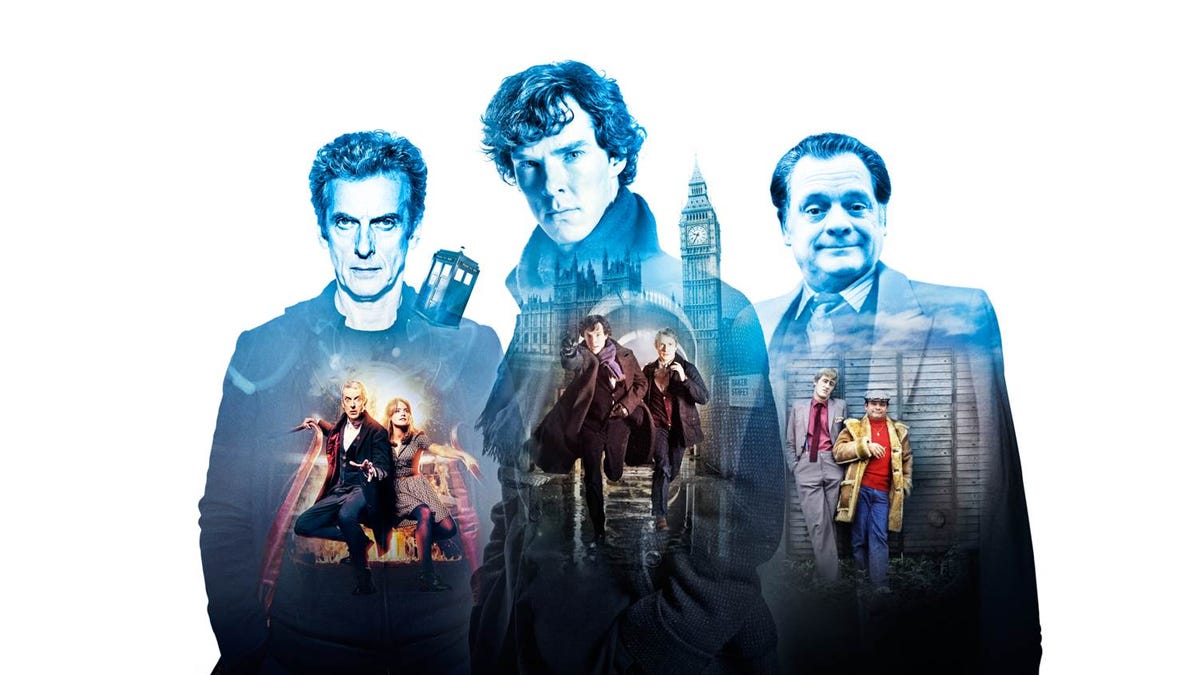BBC Store lets you buy digital copies of TV shows, hours after they've aired
The BBC's new digital shop -- open now -- won't replace iPlayer but will, it's hoped, generate some extra cash for the publicly funded broadcaster.

The new BBC Store will feature decades' worth of programming, some of which has never been available to buy before.
Brits will from today be able to pay to own digital copies of BBC programmes, in a new service from the publicly funded broadcaster that will help it generate cash from areas other than the licence fee.
The BBC Store -- plans for which were first detailed back in 2013 -- marks a big step for the broadcaster into the world of digital shopping, and follows in the footsteps of the iPlayer online streaming service, which was launched in 2007 and lets UK residents catch up on recently aired programmes at no extra cost. While the BBC has a long history of selling its shows on physical media such as DVDs, the arrival of the BBC Store will make it possible to buy individual episodes of TV shows hours after they've aired.
It make the BBC's TV shows available to buy and keep via a dedicated website, or on the broadcaster's iPlayer service, where they'll sit alongside the existing 30-day free catch-up programming. Programmes will be added to the Store and available to buy within hours of being shown on TV, though if you're on iPlayer and try to buy a programme that's still available through catch-up, an on-screen prompt will let you know that you could be watching it for free, which should cut down on unnecessary spending.
The BBC calculates it'll have over 7,000 hours of programming available to buy from today, with shows including "Sherlock", recent episodes of "Doctor Who" and a glittering hoard of David Attenborough documentaries, alongside offerings from the vaults such as Dennis Potter plays and "Dad's Army" -- which has never been available to snap up as a digital download before.
Detailing its plans for the Store at a London event yesterday, Auntie said that shoppers can expect to pay from £1.89 to own a single episode, or roughly £8 to buy a six-part series. In an effort to get viewers using the BBC Store, the BBC will knock 25 percent off the price of the first thing you buy, including the pricier box sets. HD downloads are available for more recent shows, but will cost a little extra. For now, you'll only be able to download BBC Store programmes for offline viewing if you're using a computer, but plans are in the works to get mobile apps equipped with this feature before the end of the year.
UK only
Unfortunately for people who live elsewhere, the BBC says the Store will only be available in the UK, and that it had "no plans" to take the service overseas. The BBC did, however, reiterate its plans to launch a Netflix-style subscription service in the US.
BBC Store launches ahead of a charter review for the broadcaster, scheduled for next year, which is an opportunity for the UK government to alter how the BBC is financed and operated. Earlier this year the government confirmed the BBC would be responsible for covering the cost of providing free TV licences for over-75s, while a group of MPs led by Conservative government minister John Whittingdale claimed the licence fee, which costs £145.50 annually for every household that watches or records live TV, had no long-term future.
Marcus Arthur, president of BBC Worldwide for UK, Australia and New Zealand, told CNET, "Any profits or revenues that are generated from all BBC Worldwide activity goes back to the BBC, so that the BBC can make more programmes.
"BBC [Worldwide] has committed to delivering £1.2 billion of revenue back to the public service over the next five years," Arthur said. "That's actually 15 percent more than we did in the last five years, and things like BBC Store will be part of that money we give back to the BBC."

